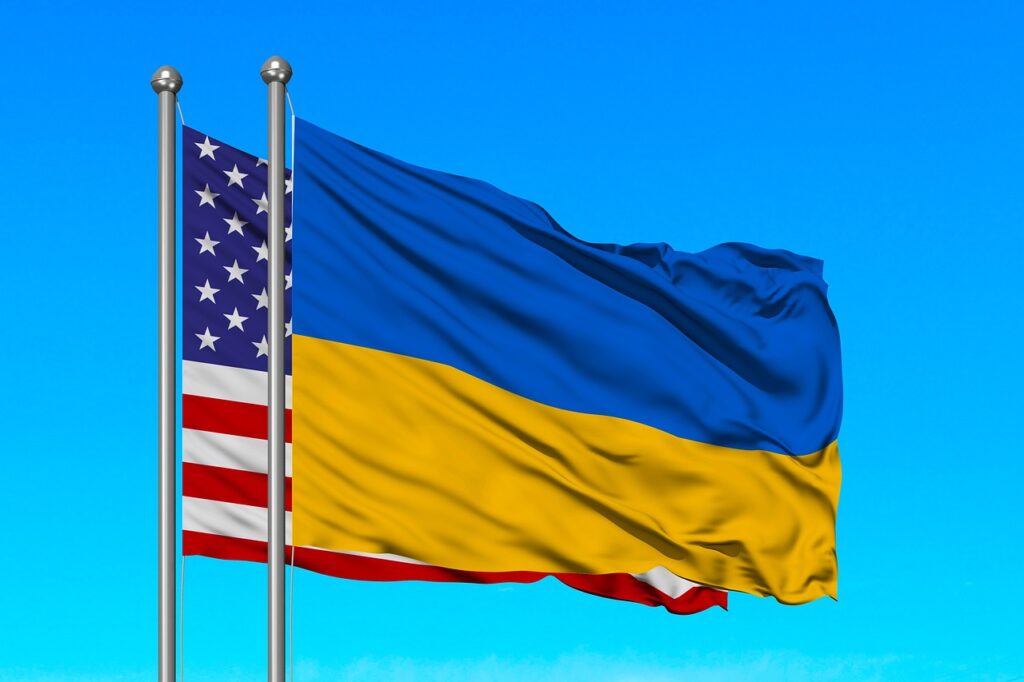By Maida Pollinari - Russia Team
The war between Russia and Ukraine, now in its third year, continues to be intensely volatile and dynamic. Recent developments, particularly the approval of a significant US military aid package, mark a critical juncture in international support for Ukraine. This article delves into the US decision, its ripple effects across Europe, and the broader implications for all parties involved.
US Military Aid Package to Ukraine
On April 24, 2024, US President Joe Biden approved a substantial $61 billion aid package for Ukraine. This decision concluded prolonged and intense negotiations within the US Congress, characterised by a bipartisan struggle. Notably, Republican Mike Johnson, initially a staunch opponent, reversed his stance after a confidential briefing, citing the existential threat posed by an "axis of evil" comprising Xi Jinping, Vladimir Putin, and Iran. Johnson emphasised that supporting Ukraine was crucial to US national security and a testament to American leadership in defending democracy.
Strategic and Political Motivations
Analysts suggest that this aid package is not only a pragmatic political move but also a strategic necessity. The aid aims to stabilise Ukraine's frontlines, mitigating fears of a Russian breakthrough or Ukrainian collapse. This stabilisation is crucial as it sets the stage for potential Ukrainian offensives in the coming months. Furthermore, the timing of this aid is significant given the approaching US presidential elections. Prolonging the conflict could adversely affect former President Donald Trump's approval ratings, possibly benefiting Biden among undecided voters.
European Response
The US decision has resonated strongly across Europe, prompting several nations to announce their own aid packages. On April 23, 2024, during a visit to Warsaw, British Prime Minister Rishi Sunak unveiled the UK's largest military aid package to date for Ukraine, worth £500 million. Sunak underscored the importance of defending Ukraine not just for regional security but for the entire European continent, warning that a victorious Putin would not halt at Poland's border.
Similarly, Sweden has committed 13 billion kronor ($1.23 billion) in military aid, marking the largest Scandinavian contribution. The Czech Republic has pledged to deliver at least 1.5 million artillery shells by year's end, part of a covert supply strategy involving unnamed countries, likely including some BRICS nations like India and South Africa.
Broader Implications and Russian Reaction
The widespread European support highlights a unified front against Russian offensive and a collective effort towards Ukraine's post-war reconstruction. However, the approval of the US aid package has not been well-received by Russia. Kremlin spokesman Dmitri Peskov condemned the decision, suggesting it would enrich the US at Ukraine's expense and result in further Ukrainian casualties. Former Russian President Dmitri Medvedev expressed hostility, wishing for internal US turmoil, while President Putin acknowledged the increased costs of Russia's military operations and committed to record war spending of 6% of GDP in 2024.
Economic and Military Considerations
Despite current economic stability, bolstered by domestic fiscal policies and import substitution, Russia's financial sustainability remains uncertain. Continued Western support is vital for Ukraine, especially given the critical timing of arms deliveries and their deployment on the battlefield. This window of delay provides the Russian military with opportunities to target Ukrainian infrastructure, particularly its energy sector. Moscow's propaganda leverages these delays to project Western disunity and ongoing internal US discord, which Russia finds reassuring.

Future Outlook
The conflict's trajectory remains uncertain, with the upcoming US presidential elections poised to influence future dynamics and support for Ukraine. The sustained cohesion and determination of Western allies are essential for Ukraine's long-term resilience against Russian aggression. The new aid package from the US represents a pivotal moment, demonstrating substantial international support for Ukraine with profound implications for the global power balance and the conflict's future.
Conclusion
In summary, the approval of the $61 billion US military aid package signifies a crucial step in international backing for Ukraine. The response from European nations further consolidates a collective stance against Russian offensive, highlighting a significant geopolitical shift. Meanwhile, Russian reactions underscore the persistent challenges and the importance of continued, coordinated support for Ukraine. The coming months and years will be decisive in shaping the conflict's outcome and the broader geopolitical landscape.

No comments.